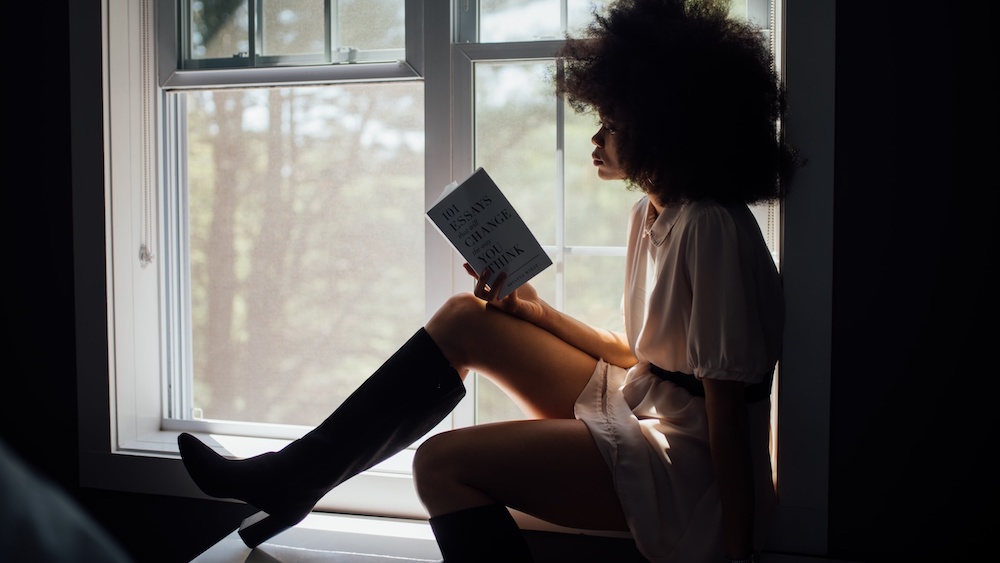If you’re interested in sharing your opinion on any cultural, political or personal topic, create an account here and check out our how-to post to learn more.
____
“Women of today are still being called upon to stretch across the gap of male ignorance and to educate men as to our existence and our needs. This is an old and primary tool of all oppressors to keep the oppressed occupied with the master's concerns.”
— Audre Lorde, Sister Outsider: The Master’s Tools Will Never Dismantle the Master’s House
Oluwatoyin Salau was a 19-year-old Black Lives Matter activist in Tallahassee, Florida. On June 6, she tweeted about her sexual assault by a Black man. She went missing that same day. Her body was found a week later alongside the body of another Black woman, Victoria Sims, a 75-year-old AARP volunteer. A 45-year-old Black man named Aaron Glee Jr. is now in police custody in connection to these two murders.
A viral video showed a Black woman being thrown into a dumpster on the night of June 15 by a group of Black men in Black Lives Matter attire — including two young DC rappers named Fat Rodney and Cruddy Murda — after spewing inappropriate comments at her.
On June 16, a viral video set in Harlem showed a Black man knocking out a Black woman by hitting her in the face with his skateboard after she rejected him.
Black men behave as though Black women serve as their ethical playground. They are allowed to frolic in their ignorance without regard for the Black women they are hurting in that same sandbox.
J. Cole’s untimely and uncharitable song “Snow on tha Bluff” effectively tone policed an unnamed Black woman. The song also suggested that Black women are required to teach Black men what they know.
After the collective viewing of these incidents, it is completely unreasonable, inconsiderate, and misguided to ask Black women to deliver their knowledge to Black men with inside voices and soft tones. However, the “conscious” North Carolina rapper J. Cole did just that.
Tone policing prioritizes the comfort of the oppressor rather than the frustrations of the oppressed. Tone policing Black women directly perpetuates the angry Black woman stereotype and attempts to silence our very valid rage. Black women are allowed to feel the full range of emotions — especially passion, frustration and anger.
The attempt to tone police Black women while simultaneously telling them to educate Black men is far too unconscionable.
Black women do not owe Black men our emotional and intellectual labor. Black women are not required to spoon-feed information to Black men with whom we share the same resources and intellectual capabilities. It is not required of Black women to disseminate the knowledge they themselves had to earn to everyone else. Especially when the critiquing and informing of Black men often get met with obtuseness, refusal and disrespect. Especially when Black women have been martyrized by ignorant Black men.
It is with a complete disregard for history that a Black man would even imply that Black women do not share their knowledge. It discounts the work of Audre Lorde, Angela Davis, Charlene Carruthers, Kimberlé Crenshaw and so many other Black female writers, educators and activists that have given both Black women and men the resources to acquire this knowledge for themselves.
Black men continue to evade responsibility when they decide to burden Black women with this unreasonably hefty load. We cannot and should not have to play the roles of writer, reader, thinker and teacher.
Who will teach Black women? Who will protect Black women? Who will heal Black women? Who will hear Black women?
The journey of learning and unlearning is one of discomfort — and often humility. If your feelings don’t get hurt along the way, you are not properly putting in the work to learn and unlearn.
There is no guarantee that a Black woman’s words will not fall on deaf ears. There is no promise that each and every Black man we attempt to educate will change. A person must be willing to learn before you may pour your knowledge into them. What an impossible task it is to educate grown men.
What also does it say of Black men if they think that all Black women must educate them? It implies that Black men do not have the intellectual capabilities to do the learning as we did. It implies that all Black women share the same perspectives and levels of education. Neither of these things is true.
Black women cannot be all things to all people at all times — not even for Black men.

